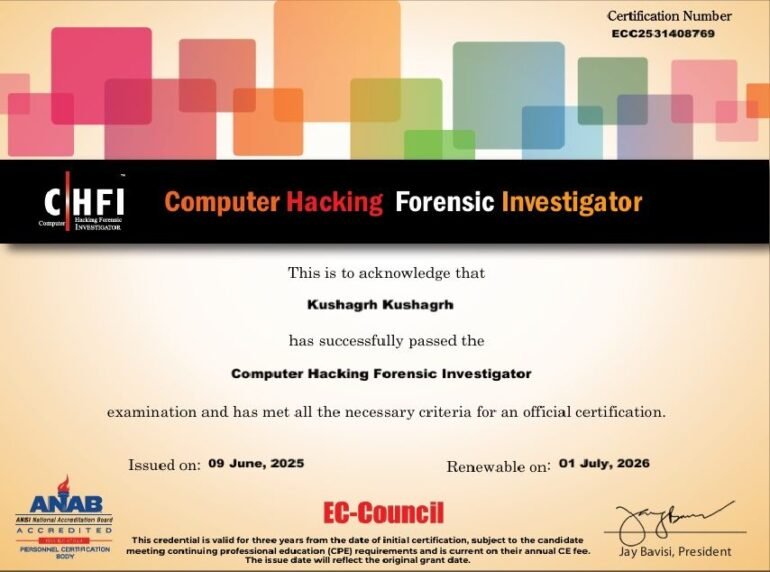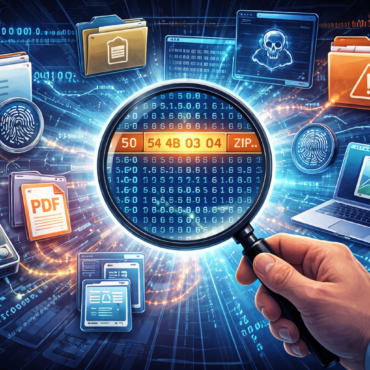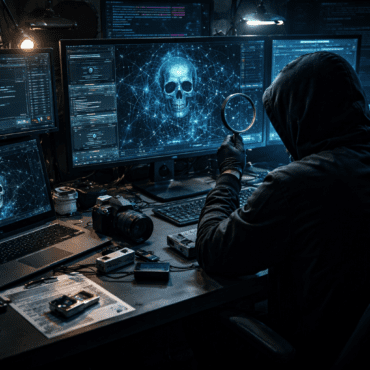Top Cyber Forensics Course Training in Delhi | CHFI Certification
In the age of ever-evolving cyber threats, the demand for skilled digital forensic professionals is skyrocketing. One of the most recognized certifications in this field is the Computer Hacking Forensic Investigator (CHFI). If you’re in Delhi and looking to establish or advance your career in cyber forensics, the CHFI v11 course training in Delhi offers an excellent opportunity to gain world-class skills, tools knowledge, and certification recognition.
In this blog, we will explore the CHFI certification in detail — its significance, curriculum, tools covered, and why Delhi is becoming a hotspot for cyber forensic training.
CHFI Certification – An Overview
The Computer Hacking Forensic Investigator (CHFI) certification is a prestigious credential offered by the EC-Council, designed to validate a candidate’s skills in identifying hacking attacks, extracting evidence, and conducting formal investigations for prosecution purposes. It empowers individuals to:
-
Investigate cybercrimes,
-
Collect and analyze digital evidence,
-
Follow chain-of-custody protocols,
-
And produce legally admissible reports.
The CHFI v11 is the latest version and includes updated content and lab environments reflecting modern-day cybercrime scenarios.
CHFI Training in Delhi – Why Choose It?
Delhi has emerged as a major center for cyber security and forensic training in India. With increasing digital crime in India’s capital, law enforcement, corporate sectors, and private forensic labs are in constant need of trained cyber forensic professionals.
Top training centers in Delhi, like Hawk Eye Forensic, offer industry-recognized CHFI training with:
Whether you’re a student, IT professional, or law enforcement personnel, CHFI training in Delhi ensures a powerful boost to your career in cyber forensics.
Computer Hacking Forensic Investigator in Delhi – Curriculum Overview
The CHFI v11 course curriculum is built around real-time cyber investigation scenarios and legal protocols. Here’s what it typically covers:

1.1. Understand the Fundamentals of Computer Forensics
1.2. Understand Cybercrimes and their Investigation Procedures
1.3. Understand Digital Evidence
1.4. Understand Forensic Readiness, Incident Response and the Role of SOC (Security
Operations Center) in Computer Forensics
1.5. Identify the Roles and Responsibilities of a Forensic Investigator
1.6. Understand the Challenges Faced in Investigating Cybercrimes
2.1. Understand the Forensic Investigation Process and its Importance
2.2. Understand the Pre-investigation Phase
2.3. Understand First Response
2.4. Understand the Investigation Phase
2.5. Understand the Post-investigation Phase
3.1. Describe Different Types of Disk Drives and their Characteristics
3.2. Explain the Logical Structure of a Disk
3.3. Understand Booting Process of Windows, Linux and Mac Operating Systems
3.4. Understand Various File Systems of Windows, Linux and Mac Operating Systems
3.5. Examine File System Using Autopsy and The Sleuth Kit Tools
3.6. Understand Storage Systems
3.7. Understand Encoding Standards and Hex Editors
3.8. Analyze Popular File Formats Using Hex Editor
4.1. Understand Data Acquisition Fundamentals
4.2. Understand Data Acquisition Methodology
4.3. Prepare an Image File for Examination
5.1. Understand Anti-forensics Techniques
5.2. Discuss Data Deletion and Recycle Bin Forensics
5.3. Illustrate File Carving Techniques and Ways to Recover Evidence from Deleted Partitions
5.4. Explore Password Cracking/Bypassing Techniques
5.5. Detect Steganography, Hidden Data in File System Structures, Trail Obfuscation, and File Extension Mismatch
5.6. Understand Techniques of Artifact Wiping, Overwritten Data/Metadata Detection, and Encryption
5.7. Detect Program Packers and Footprint Minimizing Techniques
5.8. Understand Anti-forensics Countermeasures
6.1. Collect Volatile and Non-volatile Information
6.2. Perform Windows Memory and Registry Analysis
6.3. Examine the Cache, Cookie and History Recorded in Web Browsers
6.4. Examine Windows Files and Metadata
6.5. Understand ShellBags, LNK Files, and Jump Lists
6.6. Understand Text-based Logs and Windows Event Logs
7.1. Understand Volatile and Non-volatile Data in Linux
7.2. Analyze Filesystem Images Using The Sleuth Kit
7.3. Demonstrate Memory Forensics Using Volatility & PhotoRec
7.4. Understand Mac Forensics
8.1. Understand Network Forensics
8.2. Explain Logging Fundamentals and Network Forensic Readiness
8.3. Summarize Event Correlation Concepts
8.4. Identify Indicators of Compromise (IoCs) from Network Logs
8.5. Investigate Network Traffic
8.6. Perform Incident Detection and Examination with SIEM Tools
8.7. Monitor and Detect Wireless Network Attacks
9.1. Understand Web Application Forensics
9.2. Understand Internet Information Services (IIS) Logs
9.3. Understand Apache Web Server Logs
9.4. Understand the Functionality of Intrusion Detection System (IDS)
9.5. Understand the Functionality of Web Application Firewall (WAF)
9.6. Investigate Web Attacks on Windows-based Servers
9.7. Detect and Investigate Various Attacks on Web Applications
10.1. Understand the Dark Web
10.2. Determine How to Identify the Traces of Tor Browser during Investigation
10.3. Perform Tor Browser Forensics
11.1. Understand Database Forensics and its Importance
11.2. Determine Data Storage and Database Evidence Repositories in MSSQL Server
11.3. Collect Evidence Files on MSSQL Server
11.4. Perform MSSQL Forensics
11.5. Understand Internal Architecture of MySQL and Structure of Data Directory
11.6. Understand Information Schema and List MySQL Utilities for Performing Forensic Analysis
11.7. Perform MySQL Forensics on WordPress Web Application Database
12.1. Understand the Basic Cloud Computing Concepts
12.2. Understand Cloud Forensics
12.3. Understand the Fundamentals of Amazon Web Services (AWS)
12.4. Determine How to Investigate Security Incidents in AWS
12.5. Understand the Fundamentals of Microsoft Azure
12.6. Determine How to Investigate Security Incidents in Azure
12.7. Understand Forensic Methodologies for Containers and Microservices
13.1. Understand Email Basics
13.2. Understand Email Crime Investigation and its Steps
13.3. U.S. Laws Against Email Crime
14.1. Define Malware and Identify the Common Techniques Attackers Use to Spread Malware
14.2. Understand Malware Forensics Fundamentals and Recognize Types of Malware Analysis
14.3. Understand and Perform Static Analysis of Malware
14.4. Analyze Suspicious Word and PDF Documents
14.5. Understand Dynamic Malware Analysis Fundamentals and Approaches
14.6. Analyze Malware Behavior on System Properties in Real-time
14.7. Analyze Malware Behavior on Network in Real-time
14.8. Describe Fileless Malware Attacks and How they Happen
14.9. Perform Fileless Malware Analysis – Emotet
15.1. Understand the Importance of Mobile Device Forensics
15.2. Illustrate Architectural Layers and Boot Processes of Android and iOS Devices
15.3. Explain the Steps Involved in Mobile Forensics Process
15.4. Investigate Cellular Network Data
15.5. Understand SIM File System and its Data Acquisition Method
15.6. Illustrate Phone Locks and Discuss Rooting of Android and Jailbreaking of iOS Devices
15.7. Perform Logical Acquisition on Android and iOS Devices
15.8. Perform Physical Acquisition on Android and iOS Devices
15.9. Discuss Mobile Forensics Challenges and Prepare Investigation Report
16.1. Understand IoT and IoT Security Problems
16.2. Recognize Different Types of IoT Threats
16.3. Understand IoT Forensics
16.4. Perform Forensics on IoT Devices
Computer Hacking Forensic Investigator – Tools Covered in Delhi Training
During the CHFI course in Delhi, students are trained on real-world industry tools used by cyber forensic professionals globally. Some of the major tools include:

These tools ensure students are job-ready and can handle investigations involving deleted files, encrypted data, malware, and more.Who Should Attend CHFI Training in Delhi?
This course is ideal for:
-
Cybercrime investigators
-
Law enforcement officers
-
Digital forensic analysts
-
Ethical hackers
-
Network security professionals
-
Legal professionals handling digital evidence
Why Choose Hawk Eye Forensic for CHFI Training in Delhi?
As one of Delhi’s top EC-Council Accredited Training Centers (ATC), Hawk Eye Forensic offers a unique edge in CHFI training:
-
Live case-based training by industry experts
-
Access to certified forensic tools
-
100% practical curriculum
-
Assistance in exam registration and preparation
-
Placement support
Get Started Today!
Ready to become a certified cyber forensics investigator?
📍 Visit: C-38, 2nd Floor, Sector-65, Noida-201301
📧 Email: info@hawkeyeforensic.com
📞 Call/WhatsApp: +91-9718888589







Post comments (0)